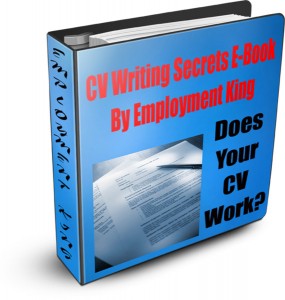Do you find it hard to remember task your manager has set you? Do you sometimes go shopping and forget what ingredients you need to buy or do you want to improve how you can remember answers to exams and test?
A technique named the Memory Palace, which was made famous through the “Hannibal” books by Thomas Harris, can help increase your memory skills which will open up new possibilities for you.
The Memory Palace is one of the most powerful memory techniques available and is easy and fun to learn! The Memory Palace technique is based on the fact that we remember the details of the places we know; our home, place of work or local street.
By adding abstract images to these places with sounds and smells you can record large amounts of information that you can quickly access when needed.
If you would like to improve your memory skills then this technique can help and is easy and fun to use.
Memory Palace Technique
Picking a Palace
First you need to pick your palace, your palace is a place you know well, this could be your house, your school, place of work or even a street you know well. You should be very familiar with the palace you choose, you need to be able to close your eyes and re-call all of the details of the place or building.
When you imagine your palace, see it from your eyes as if you were there now, you need to feel associated with your palace, seeing what you can see, smelling the smells, hearing any sounds, tasting any taste and feeling the rooms temperature or objects you may brush pass, as if you were walking through your palace for real.
Close your eyes and in your minds eye remember all the details of your palace as if you were there now.
Distinctive Features
As you walk through your palace, start form the beginning this may be a front door or garden gate and notice all the details of your palace, if you can see a door notice the color of the door, be aware if the paint is peeling off or just been newly coated, whatever the details are become aware of them all now.
As you walk through your palace, in each room follow the same routine looking from left to right or right to left, as you visualize the room, be aware of any new taste or smells, make a mental note of anything that sticks out, anything that grabs your attention.
If you struggle to remember parts of your palace either pick a new palace or physically go to your palace and walk through it for real.
Continue to walk through your palace until you can easily remember all the details of every room.
Association
Take the list of items you want to remember and again visualize your memory palace from the beginning, we will call all the memory palace features that stuck out as a memory peg.
Using a “memory peg” (a feature from your memory palace; example door, picture etc) combine it with the element you want to memorize; make this as crazy and unusual as possible, as our mind will quickly remember the unusual.
For each item you want to remember try to give it a visual reference, a sound, a taste, a smell and a feeling (internal or external)
As an example, if a Personal Assistant wanted to remember a list of tasks you need to complete for your manager and your memory palace is your own house, you may start by being stood outside your front door.
As you look at your door a giant letter E comes through the letter box, getting bigger and bigger made out of the material you get in a car airbag. As it get so big it touches your face, feel the material on your face and smell the plastic smell and then the giant E quickly deflates like a large balloon making a trumping type sound. This represents your first task, checking your E-mails.
As you walk inside your palace past your front door, the next thing you see is your lamb on a table, the lamp is turned on and sizzling on top of the lamp light build is a piece of bacon, as you breath in you can smell that lovely bacon smell. Tasting the bacon in your mouth, which will remind you of your second task collecting your manager’s breakfast.
You can use anything in your memory palace that will associate your task, as a second example I may have walked past the door and seen a dancing pig wearing a muffin jacket to remind me of getting my mangers breakfast, like we said the weirder the better.
By associating these weird images to a place and items you know well, your front door, your table and lamp you can walk through your memory palace recording large amounts of information.
Visit Your Palace
Repeat the journey a couple of times (especially if your new to this technique), starting from the same point each time, paying attention to all your memory pegs. Once you have finished, re-walk the route starting from the end (your last memory peg) and walking all the way back through your palace until you end at the beginning, seeing your visual images in reversed order.
This technique takes a little bit of practice and for all you NLP-ers who follow this blog you are associating your items using VAKOG
If you enjoyed this article, you will also enjoy reading:


